Filter by
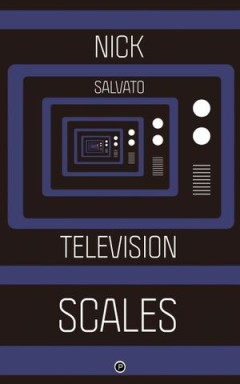
Television Scales
How to reckon with the staggering volume of television materials, past and present? And how to comprehend all the potential, complex scales at which to grapple with television, from its tiniest units of audiovisual content to its most massive industrial coordinates and beyond? In Television Scales, Nick Salvato demonstrates how the problem of scale in the field of television may be turned into …
- Edition
- -
- ISBN/ISSN
- 9781950192410
- Collation
- -
- Series Title
- -
- Call Number
- 791.45 SAL t
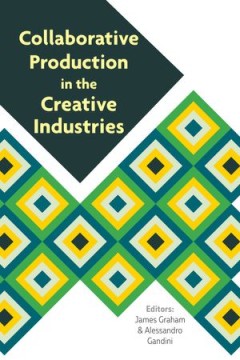
Collaborative Production in the Creative Industries
In recent years research into creative labour and cultural work has usually addressed the politics of production in these fields, but the sociotechnical and aesthetic dimensions of collaborative creative work have been somewhat overlooked. This book aims to address this gap. Through case studies that range from TV showrunning to independent publishing, from the film industry to social media pla…
- Edition
- -
- ISBN/ISSN
- 9781911534280
- Collation
- -
- Series Title
- -
- Call Number
- 745 COL c

Read till it shatters: Nationalism and identity in modern Thai literature
This book introduces readers to modern Thai literature through the themes of modernity, nationalism, identity and gender. In the cultural, political and social transformations that occurred in Thailand during the first half of the twentieth century, Thai literature was one of the vehicles that moved the changes. Taking seriously ‘read till it shatters’, a Thai phrase that instructs readers …
- Edition
- -
- ISBN/ISSN
- 9781760462260
- Collation
- -
- Series Title
- -
- Call Number
- -
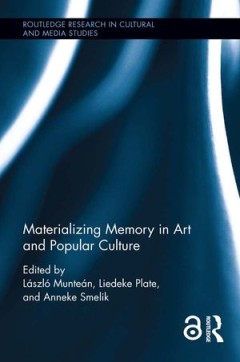
Materializing Memory in Art and Popular Culture
Memory matters. It matters because memory brings the past into the present, and opens it up to the future. But it also matters literally, because memory is mediated materially. Materiality is the stuff of memory. Meaningful objects that we love (or hate) function not only as aide-mémoire but are integral to memory. Drawing on previous scholarship on the interrelation of memory and materiality,…
- Edition
- -
- ISBN/ISSN
- 9781315472164
- Collation
- -
- Series Title
- -
- Call Number
- 701 MAT m
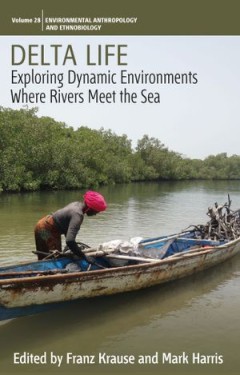
Delta Life
Proposing a series of innovative steps towards better understanding human lives at the interstices of water and land, this volume includes eight ethnographies from deltas around the world. The book presents ‘delta life’ with intimate descriptions of the predicaments, imaginations and activities of delta inhabitants. Conceptually, the collection develops ‘delta life’ as a metaphor for ap…
- Edition
- -
- ISBN/ISSN
- 9781800731240
- Collation
- -
- Series Title
- -
- Call Number
- -
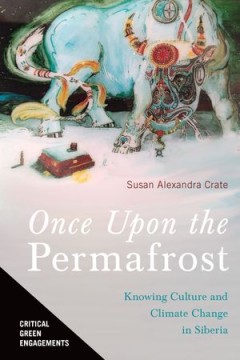
Once Upon the Permafrost
Once Upon the Permafrost is a longitudinal climate ethnography about “knowing” a specific culture and the ecosystem that culture physically and spiritually depends on in the twenty-first-century context of climate change. The author, anthropologist Susan Alexandra Crate, has spent three decades working with Sakha, the Turkic-speaking horse and cattle agropastoralists of northeastern Siberia…
- Edition
- -
- ISBN/ISSN
- 9780816541546
- Collation
- -
- Series Title
- -
- Call Number
- -
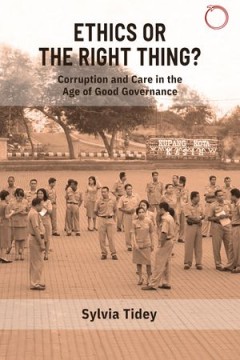
Ethics or the Right Thing? Corruption and Care in the Age of Good Governance
A sympathetic examination of the failure of anti-corruption efforts in contemporary Indonesia. Combining ethnographic fieldwork in the city of Kupang with an acute historical sensibility, Sylvia Tidey shows how good governance initiatives paradoxically perpetuate civil service corruption while also facilitating the emergence of new forms of it. Importing critical insights from the anthropology …
- Edition
- -
- ISBN/ISSN
- 9781912808656
- Collation
- -
- Series Title
- -
- Call Number
- 300
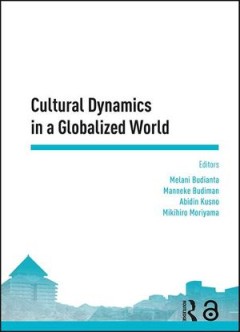
Cultural Dynamics in a Globalized World: Proceedings of the Asia-Pacific Rese…
The book contains essays on current issues in arts and humanities in which peoples and cultures compete as well as collaborate in globalizing the world while maintaining their uniqueness as viewed from cross- and interdisciplinary perspectives. The book covers areas such as literature, cultural studies, archaeology, philosophy, history, language studies, information and literacy studies, and ar…
- Edition
- -
- ISBN/ISSN
- 9781315225340
- Collation
- -
- Series Title
- -
- Call Number
- 808.84 CUL c
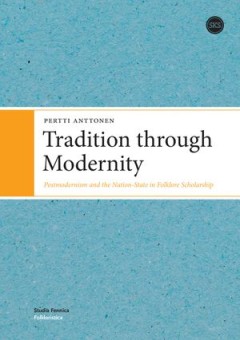
Tradition Through Modernity: Postmodernism and The Nation-State in Folklore S…
"In their study of social practices deemed traditional, scholars tend to use the concept and idea of tradition as an element of meaning in the practices under investigation. But just whose meaning is it? Is it a meaning generated by those who study tradition or those whose traditions are being studied? In both cases, particular criteria for traditionality are employed, whether these are explica…
- Edition
- -
- ISBN/ISSN
- 9789517466653
- Collation
- -
- Series Title
- -
- Call Number
- 700 ANT a
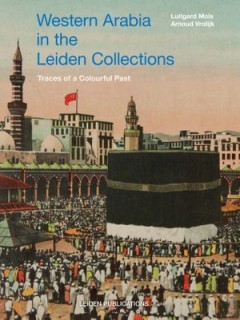
Western Arabia in the Leiden Collections. Traces of a Colourful Past
"In the late nineteenth and early twentieth century Dutch diplomats, scholars and travellers assembled unique collections in Jeddah, Mecca and Medina. The Dutch presence in Arabia, where they established a consulate in Jeddah, was intimately connected with the supervision of the annual pilgrimage to Mecca from the Netherlands East Indies, present-day Indonesia. Notable guests at this consulate …
- Edition
- -
- ISBN/ISSN
- 9789087282592
- Collation
- -
- Series Title
- -
- Call Number
- 708 MOL w
 Computer Science, Information & General Works
Computer Science, Information & General Works  Philosophy & Psychology
Philosophy & Psychology  Religion
Religion  Social Sciences
Social Sciences  Language
Language  Pure Science
Pure Science  Applied Sciences
Applied Sciences  Art & Recreation
Art & Recreation  Literature
Literature  History & Geography
History & Geography